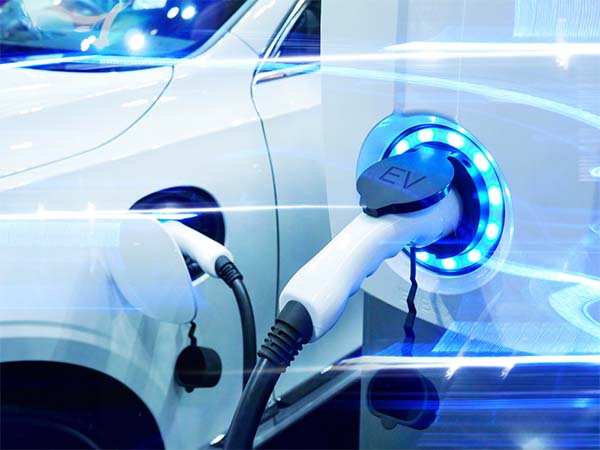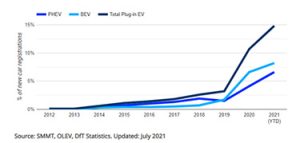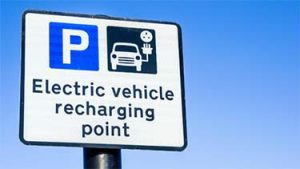
According to the latest data reported by the NOAA, July 2021 has cemented itself as the world’s hottest month ever recorded. This data has put 2021 on course to ranking amongst the world’s 10 warmest years on record.
Global climate change is accelerating, with human-caused emissions of greenhouse gases being the overwhelming cause. However, according to scientists, it’s not too late to cool things down, but only if countries stop burning fossil fuels as soon as possible. The message to world leaders has become more unequivocal than ever before – The more we can reduce emissions this decade, the more liveable Earth will be for the rest of the century.
“Is it still possible to limit global warming to 1.5°C? The answer is yes” says Maisa Rojas Corradi, a climate scientist at the University of Chile. “But unless there are immediate, rapid and large-scale reductions of all greenhouse gases, limiting global warming to 1.5 degrees will be beyond reach.”
The Electric Vehicle Industry in the UK
In a bid to decarbonise transport and help end the UK’s contribution to climate change by 2050, the UK government announced sales of new petrol and diesel cars were to be banned by 2030. This move has been coupled with a £1.8 billion initiative to support greater uptake of electric vehicles, improve EV infrastructure, and fund innovation for new clean technologies.
As governments continue to set new targets for reducing carbon emissions, and consumers become more eco-conscious, global demand for electric vehicles is accelerating. 2020 saw the biggest annual increase in number of electric vehicle registrations in the UK, with more than 175,000 electric vehicles registered, showing a growth of 66% on 2019. This is despite the car industry suffering significant decline in demand due to the Covid-19 pandemic.

With the UK’s drive to decarbonise transport, the scale of production needed for EVs is greater than ever before, and will only continue to rise. These changes in the automotive sector mean that new parts and materials are in demand, not just when it comes to electronics and batteries to power the next generation of vehicles, but also the infrastructure required to support them.
One hurdle many petrol car owners are facing when it comes to making the switch to EV is overcoming their ‘Range Anxiety’. Even though the EV infrastructure here in the UK is already well developed, some drivers feel anxious that they’ll run out of electric power before reaching their destination. Because of this, many are hesitant when it comes to electric cars. To help settle doubts and reassure the public, the UK government have pledged £1.3 billion to accelerate the roll-out of EV charge-points, helping to ensure the infrastructure is in place to meet future demand.

At first look, electric vehicles may look identical to petrol cars from the exterior. However, the change in prime mover, from internal combustion engines to electric motors has had a major impact on a vehicle’s BOM. The conventional vehicle powertrain consisting of engine, transmission and drivetrain has shifted to batteries, motors, and a range of other electronic components such as the battery management system, thermal management system, control unit and more.
On top of this, technology in modern cars continues to advance with features such as infotainment, telematics and advanced driver-assistance systems becoming increasingly common. Over the years, the number of ECUs in vehicles has steadily increased, with the average modern vehicle being able to integrate as many as 150 ECUs. This number is only expected to increase during the coming years as demand for EVs continues to grow.
Strain on Supply Chains
The rapidly accelerating EV market will undoubtedly have a major impact on global supply chains. The industry is beginning to boom during a time of supply-chain uncertainty, as Covid-19 has caused disruption, creating issues with sourcing, lead times and transportation of components. The uncertainty caused by Covid-19, along with the worldwide rollout of new technologies such as 5g, means semiconductor demand is outpacing manufacturing capacity.
The semiconductor shortage stems from the huge fall in car sales and a massive increase in demand for computers and other electrical devices in 2020, which diverted production away from the automotive industry. Automakers, which rely on the same semiconductor fabs for supply, were moved to the back of the queue. Compounded with a steep rise in new car sales towards the end of 2020, which caught car makers by surprise, many OEMs have been left without enough chips to keep up with the demand from consumers.
The shortage in semiconductors has already delayed production of some popular EVs. New cars can require up to 1400 ICs to manage various systems. Some car models have been subject to lengthy delays, whilst others are being ‘down-specced’ altogether to reduce the total number of chips needed for production. Earlier this month, customers who had placed orders for Mach-E Mustangs, Ford’s first all-electric SUV, were told that “the global semiconductor chip shortages are affecting our ability to keep up with demand”. As a result, deliveries of the electric sports cars would be delayed by at least six weeks.
It’s also important to keep in mind that it’s not just components needed for the vehicles themselves, but the components needed for the EV infrastructure. With tens of thousands of charge points expected to be installed by the government, as well as a huge demand from consumers to install domestic charge points, the demand for semiconductors is only growing.
During times of uncertainty, it is critical that the industry looks to take a more integrated approach in the supply chain, with all players working together. Manufacturers must be prepared to be flexible in their approach to producing EVs, by reviewing their supply chain and looking for alternative options in terms of suppliers. A long-term approach will be required by all supply chains, to ensure that the supply of components keeps pace.
Partnering with an experienced CEM can help manufacturers navigate supply chain difficulties. When component availability becomes an issue, a CEM with strong engineering expertise can anticipate potential disruptions to the supply chain, provide recommendations for suitable alternative components, and even undertake engineering work to design out problem components.
Corintech have over 40 years’ experience designing and manufacturing electronics for a range of sectors, including automotive. Our global purchasing teams in the UK, the Far East and the USA can take full management of the procurement process. By operating full supply chain management, and only purchasing from franchised distributors or component manufacturers directly, we can ensure that we attain the best opportunities and optimal price points.
We’re proud to already be supporting the UK electric vehicle industry through assisting the development and manufacture of electronics for EV propulsion and infrastructure. If you have an upcoming EV project and are looking for an experienced CEM with a strong understanding of the industry, contact our team today.




